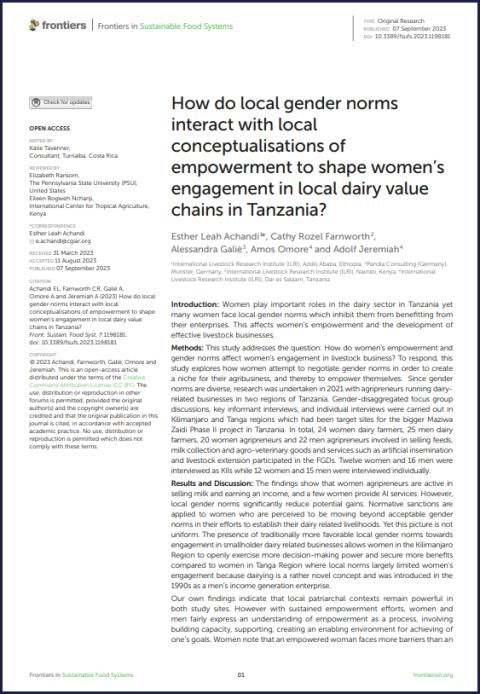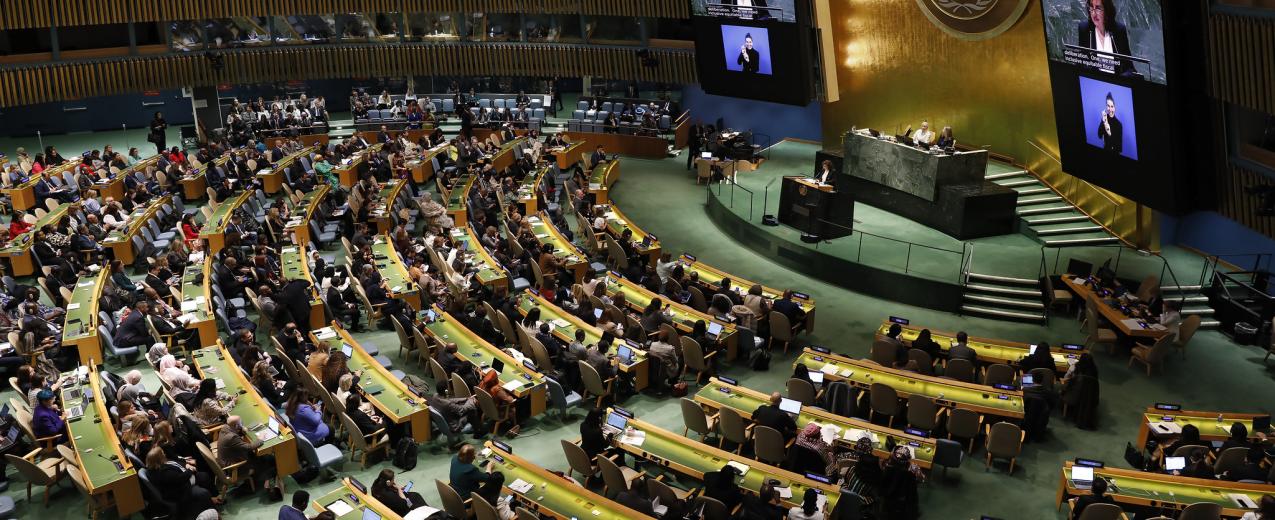
- Blog
- 3 April 2024
Shifting narratives and norms around unpaid care work at CSW68
- Author: Sonia Hoque
- Published by: ALIGN
Demands for policymakers to tackle the global crisis of care were loud and clear at the 68th session of the Commission on the Status of Women (CSW68) held on 11-22 March in New York. Following the inaugural International Day of Care and Support in October 2023, momentum has continued building around tackling the deeply gendered distribution of care work, which hinders progress toward gender equality in multiple, interrelated and complex ways.
Efforts to address low pay, precarity, and poor working conditions of paid care and domestic workers – mostly women, and a significant proportion from racialised minorities – have grown following the Covid-19 pandemic.
Closely linked to this is the issue of unpaid care work, which includes care and domestic tasks carried out without pay for family and community members. Empirical research around unpaid care work has widened thanks to increasing availability of time-use survey data. Eye-watering statistics are widely circulated, including at CSW68, showing the highly unequal distribution of unpaid care work undertaken by women and girls globally. Studies show women spend two hours and 48 minutes more than men on unpaid care work daily, a total of 12.5 billion hours - worth at least $10.8 trillion a year. Such statistics provide ‘hard’ evidence of what feminist economists have argued for decades: unpaid care work is not a ‘leisure’, ‘non-work’ or ‘voluntary’ activity - as accounted for in mainstream economic models.
Feminist researchers have long called for this unpaid work (more broadly known as social reproduction) to be seen as work that sustains the economy and produces human capital. Strategies to demonstrate the value of this work have included calculations in terms of GDP (women’s unpaid work is estimated to be worth 40% of GDP in some countries), although there is a growing call to move beyond GDP to alternative metrics that prioritise human and environmental wellbeing.
Highlighting such staggering numbers is a powerful way to capture policymakers’ attention, and discussions around how to address the issue of care took many directions at CSW68. The challenge now is for feminists to gather wider support and increase pressure for financing of holistic care policies, and interventions to shift gender norms around unpaid care work.
Diane Elson’s well-known framework of the 3 Rs – reducing, recognising and redistributing unpaid care work – has been expanded by the ILO to 5 Rs, which include reward and representation. Civil society participants at CSW68 however called for the term ‘reclaim’ rather than ‘represent’, expressing concern at the increased framing of a ‘care economy’, as opposed to care as a fundamental human right which the state must primarily be responsible for. Despite inevitable differences in the perspectives of the thousands of intersectional feminists participating in CSW68, common themes around unpaid care work emerged.
Reducing time spent on unpaid care work
Research has shown unpaid care work impacts women’s participation in paid work. Several panels at CSW68 discussed policies that can reduce time spent on unpaid care work and free up time for women to participate in formal and paid work. These include interventions such as childcare facilities, flexible working, and time- and labour-saving technologies, which are essential in the Global South to reduce the drudgery of tasks such as collecting water and fuel. Notably, discourses of policymakers tended to centre around the potential economic gains of such policies, namely the increase of women’s participation in paid work. However, it is important to acknowledge other positive impacts of reducing time on unpaid work, such as more time for skills development, rest and leisure – a point raised more frequently in parallel civil society and NGO-led discussions.


‘Activating men’ – redistributing unpaid care work within households
Addressing the unequal distribution of unpaid care work within households requires men to take on a greater share of care and domestic tasks. Discussions at CSW68 often touched upon the deeply entrenched and pervasive gender norms that assign unpaid work to women and girls, which need to be shifted to advance gender equality. As stated by the Nordic Council of Ministers during a side event, it is important to ‘activate men’ around unpaid care work, and involve them in gender equality initiatives that will also benefit them. Examples of best-practice policies include paternity and shared parental leave, and other interventions designed to shift norms encouraging men’s greater involvement in unpaid care work.
Many ministers and high-level representatives spoke of the importance of sharing unpaid care work in order to improve well-being for both men and women. However, language during panel speeches overwhelmingly referred to unpaid care work as a ‘burden’, which can be problematic when simultaneously encouraging men to take on this work as a positive and fulfilling addition to their daily lives.
Investing in care – redistributing unpaid care work via the state
Addressing unpaid care work across multiple levels is key. For this reason, redistribution must go beyond the household (i.e. sharing workloads with men) and be shared across society. A key demand from CSW68 participants was the financing of comprehensive, sustainable, and inclusive ecosystems of care. Closing existing care policy gaps and expanding care services could create almost 300 million jobs by 2035 – a statistic shared in several panels by policymakers who pointed to potential gains from investing in the care economy. Integrated care systems present an ambitious and exciting approach. Forthcoming primary research from ALIGN will examine this, looking at how integrated care systems in Latin America might have contributed to shifting gender norms around care.
As highlighted by activists from civil society and the Global South, however, it is equally important to ‘care for caregivers’. Care jobs must be well-paid, dignified, and ideally encourage men into the sector to challenge norms that see women as more suited to this work.
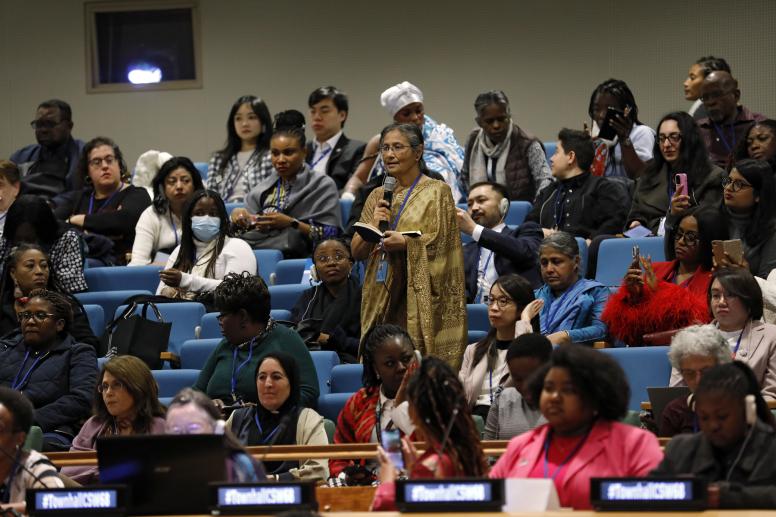
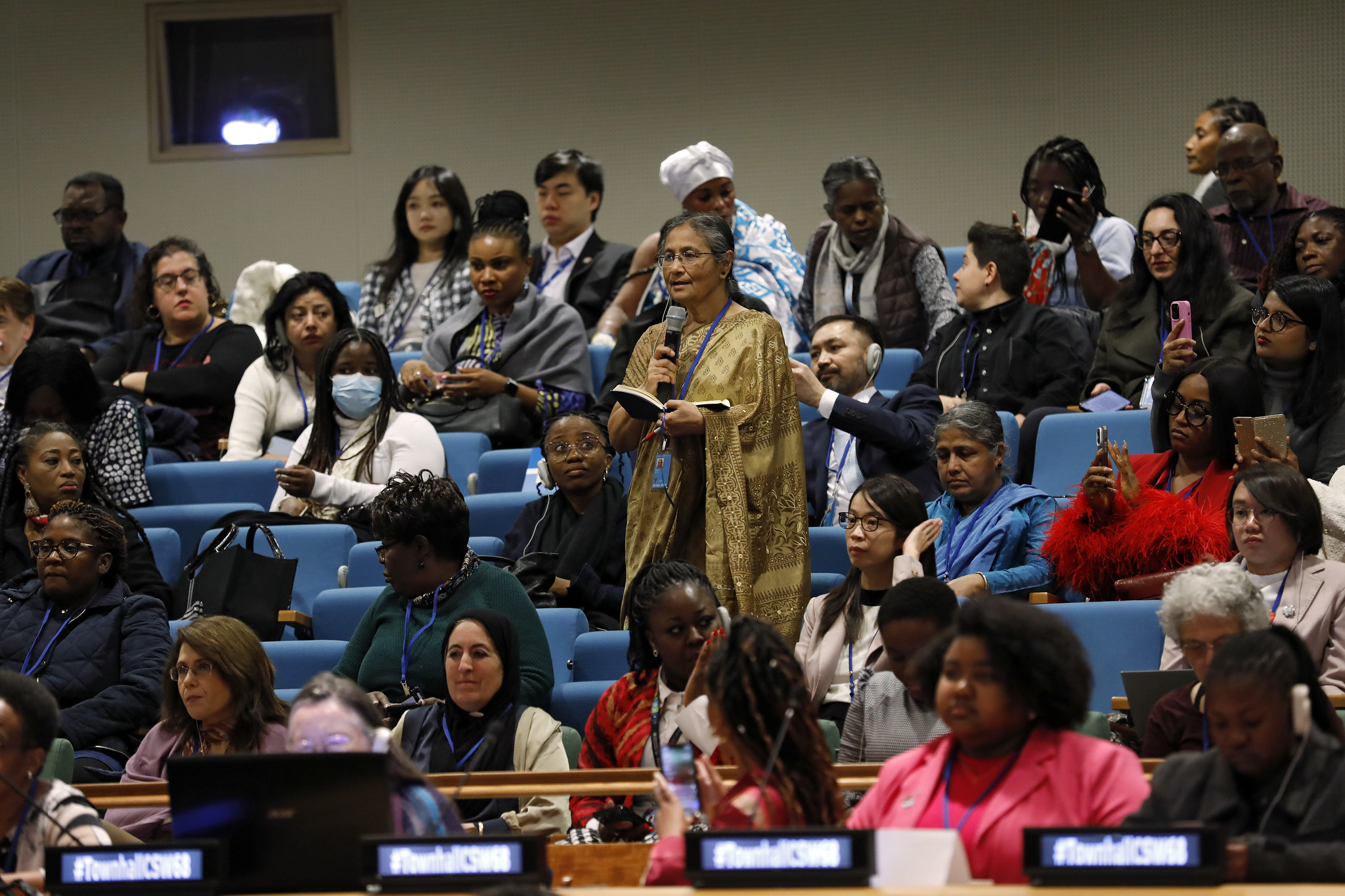
The role of gender norms
Underlying all these efforts to shift gendered inequalities in both paid and unpaid care work is the need to address gender norms – the socially accepted ideas about how people of different genders should be and act. Encouragingly, gender norms and stereotypes were explicitly acknowledged by the majority of policymakers who talked about unpaid care work – although little was said on how they might be addressed. ODI’s policy brief suggests three ways states can foster more gender-equal norms relating to care:
- individual care policies, such as funding care services or parental leave
- holistic care policy packages, such as investing in an integrated care system
- global alliances, including participating in regional and global dialogues on care.
In contexts where strong norms assigning unpaid care work to women exist, norm change interventions such as media campaigns may help shift norms and encourage the uptake of care services. In the Global South, Oxfam recently published research in Kenya and Zimbabwe which experimented with different narratives around unpaid care work. Narratives including the contribution of care work to households and the economy, the diverse skills required, and potential improvements of father-child relationships were tested within specific communities, and showed promise for shifting public perceptions and attitudes towards unpaid care work.
Beyond CSW68
The growing momentum around addressing women’s unequal unpaid care work was certainly visible at CSW68. Indeed, as shown by the Covid-19 pandemic, investing in the care sector is of utmost importance, and can also generate ‘returns’ for the economy. However – as emphasised by civil society participants – care is a social good around which society should be centred. Climate and economic justice activists, experts and policymakers must also work together to transform the paradigm of care, and push for transitions to a more sustainable society that recognises the vital roles of care and the environment. Care systems must be adequately financed by the state, and care-related interventions must include strategies to shift discriminatory gender norms.
Delivering on the commitments made around care at CSW68 and achieving long-term change will require co-ordinated and sustained efforts by multilateral agencies, civil society, governments, as well as the private sector. The voices of paid and unpaid carers must also be included, particularly from the Global South with indigenous knowledge and grassroots solutions, in order to build a more caring society that benefits everyone.
Share this blog
Recommended reading: Shifting narratives and norms around unpaid care work at #CSW68. Guest #blog for @align_gender by @SoniaHoque_UCL. https://www.alignplatform.org/resources/shifting-narratives-and-norms-around-unpaid-care-work-csw68


About the author
Sonia Hoque is a PhD candidate in the Bartlett Development Planning Unit at University College London (UCL) researching contemporary discourses around unpaid care work. Centring a decolonial, feminist and grounded approach, her research examines the extent to which narratives and framings in Global North development institutions reflect local discourses and lived experience of unpaid care work in Bangladesh. She previously managed the ALIGN platform and the Supporting Economic Transformation (SET) programme at ODI, and has also worked with Global Fund for Women, PwC and the United Nations. She holds a BSc in Economics from SOAS, University of London and an MSc in International Development from the University of Amsterdam.
- Countries / Regions:
- Global
Related resources
Report
26 March 2025
Published by: ALIGN, CIEDUR
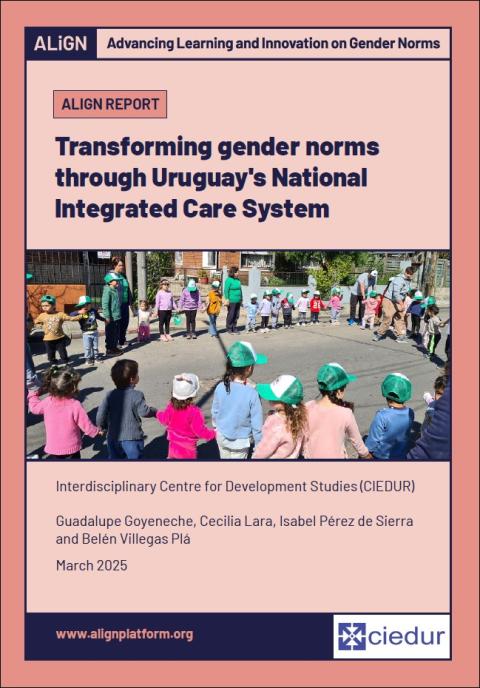
Report
20 March 2025
Published by: ALIGN, FAADEV
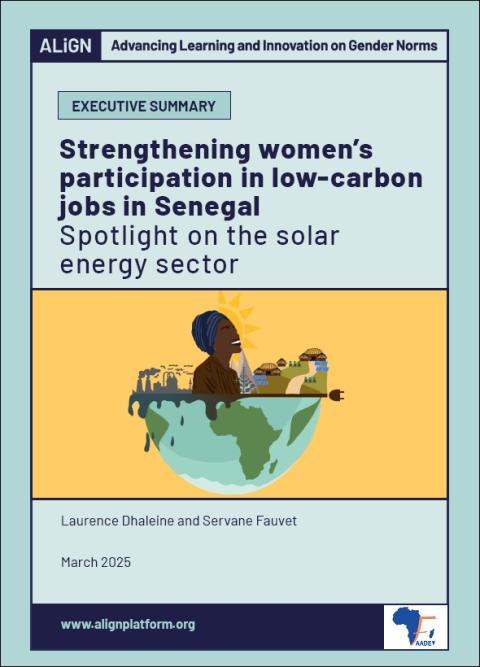
Report
20 March 2025
Published by: ALIGN, Restless Development
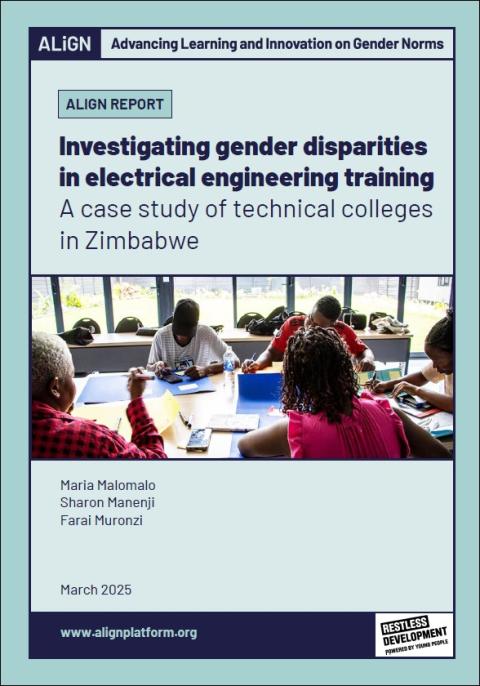
Blog
19 December 2024
Published by: ALIGN

Report
9 October 2024
Published by: Care
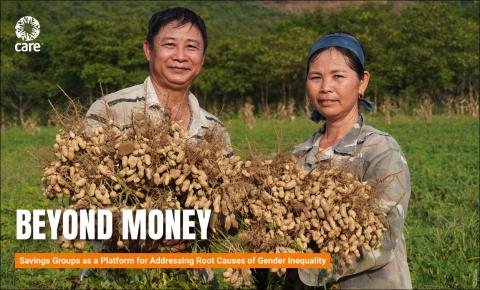
Report
17 June 2024
Published by: Deloitte Access Economics
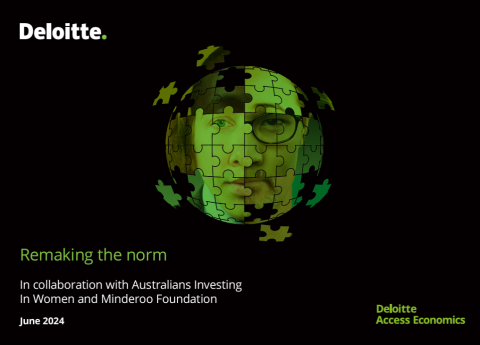
Report
15 January 2024
Published by: ALIGN

Blog
8 January 2024
Published by: ALIGN

Report
1 November 2023
Published by: Gender Equality Initiative
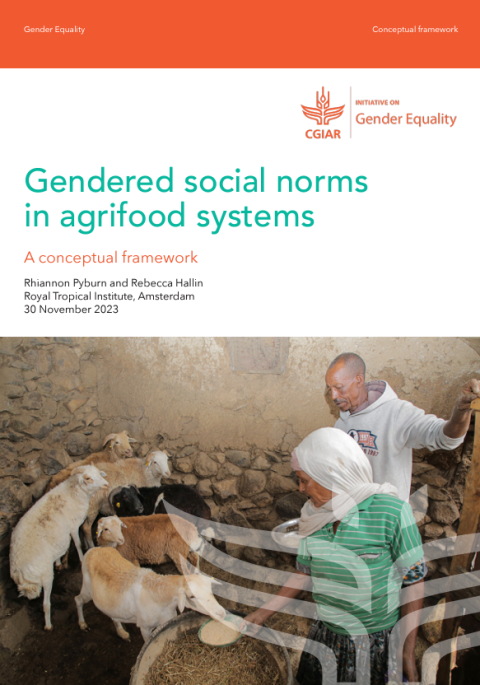
Briefing paper
26 October 2023
Published by: ODI
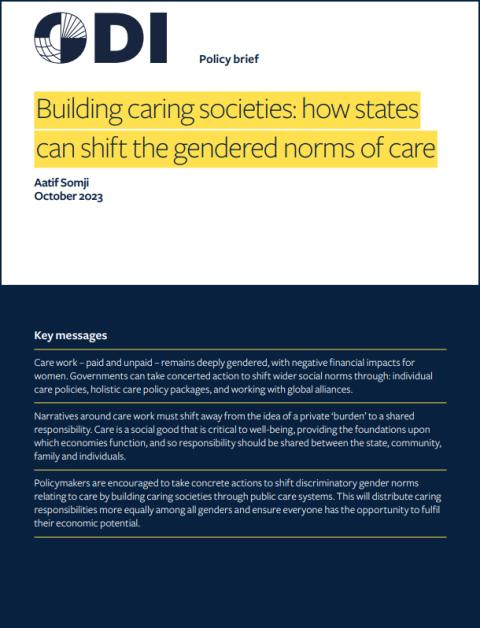
Case study
25 September 2023
Published by: Social Norms Learning Collaborative, Nigeria Learning Collaborative
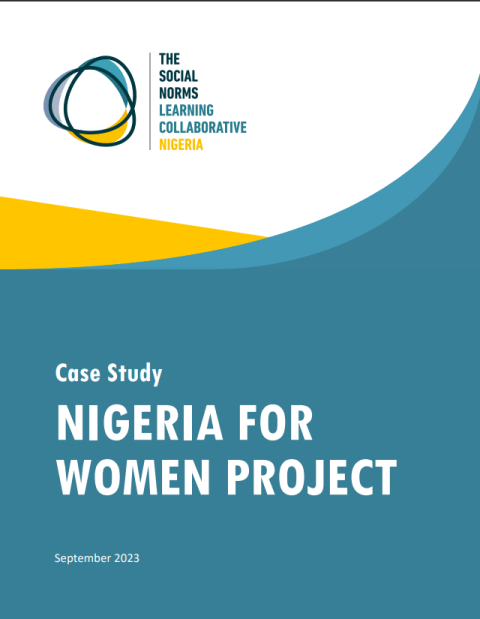
Journal article
7 September 2023
Published by: Frontiers
